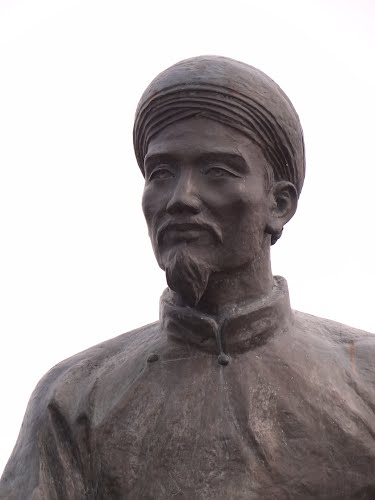
NGUYỄN DU (1766-1820) was born in Hà Tĩnh Province, Vietnam. The son of a well-ranked family of elites, Du was well-versed in the Confucian classics, but his road to prosperity was cut short by a period of civil war, during which his village was burned, and he had to wander Vietnam in search of a new home. After peace was restored with the founding of the Nguyễn dynasty in 1802, he joined the royal court as an advisor to the Ministry of Rites, and later an ambassador to China. He died in Huế, the imperial capital, at the age of fifty-four.
While dynastical records depict him as a quiet, timid mandarin, Nguyễn Du’s writings show a bold, vocal and emotional man, angered by systemic abuses of power and moved to tears by the sufferings of people, from soldiers fighting meaningless wars to sex workers dying in solitude. Through his inventive use of traditional forms, Nguyễn Du detailed the agonies of his world and asked why injustice was so rampant, sometimes calling on the Buddha to bring salvation to those who had been wronged.